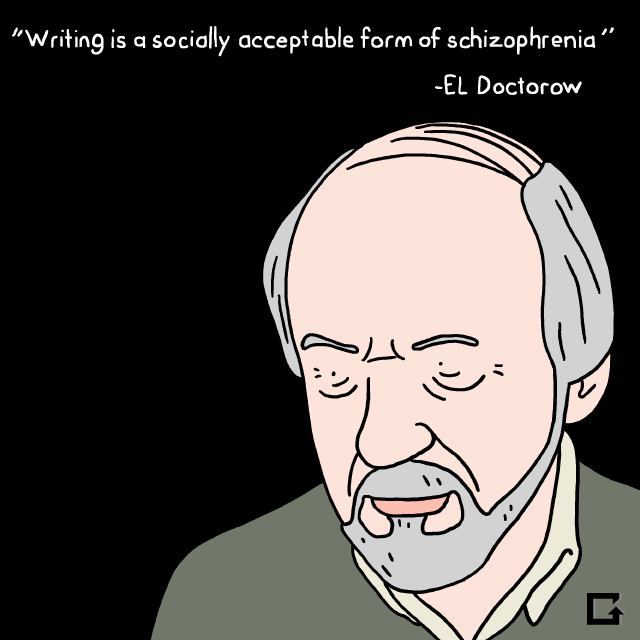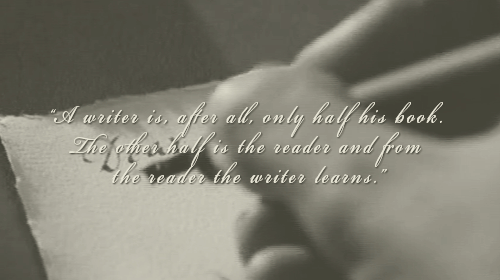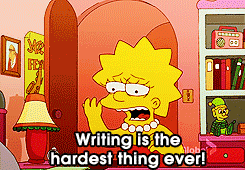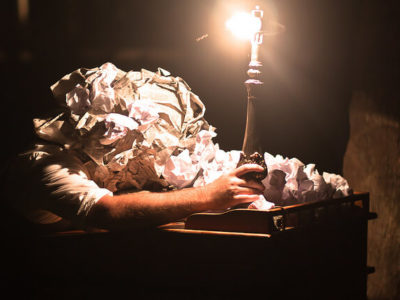Structured, planned and one-dimensional are not characteristics that describe the creative writing major. But if you’re aspiring to be the Tolkein of the millennial generation, then come aboard. Comprised of classes with workshops and a mix of literature courses, creative writing offers the perfect field of study for storytellers and out-of-the-box thinkers.
What You’ll be Doing

As a creative writing major, you can expect to write (surprise!) in many styles. Your course list will consist primarily of literature classes for the English side and workshops for the creative writing side. In Lit, you’ll be analyzing the symbolism and meanings behind characters, settings and recurring themes of famous works (yawn). While tedious, this work will equip you to form your own meaningful literature in your favorite craft. On the other hand, creative writing workshops will place you behind the pen and encourage you to formulate your own flesh and blood characters.
Upsides

1. “I think of my college experience as a gestation period, safely coddled by academia until my writing could survive on its own. I could’ve skipped college, but my writing would be less stimulating, challenging and artful. Actually, that’d probably make more money.” –Alex Okeefe, Assistant Video Producer for Slate and a freelance writer for Slate and Vice
2. “Being in writing classes forces discipline upon the creative process. When I’m only writing for myself, I typically get distracted or procrastinate, so having a syllabus with deadlines helped me to focus and create my best work.” – Caitlin Gent, Pastoral Care Intern at Eastbrook Church
3. “The best parts of getting an MFA in Creative Writing were immersion in a community of like-minded people and learning to think analytically about craft elements in a story or novel, as opposed to reading as an English major/academic would do.” – Patricia King, Faculty of the English Department at North Central College
Downsides

1. “Creative Writing programs are rarely intensive or structured enough to promote progressive learning. I discussed Walt Whitman’s ‘America’ in class more times than I went on dates in college. If you simply show up to class and complete assignments you won’t get the most out of your Creative Writing degree.” – Alex Okeefe, Assistant Video Producer for Slate and a freelance writer for Slate and Vice
2. “The most obvious downside is that finding jobs is harder. But this isn’t a unique plight to writers–just ask the history and classics majors of the world.” – Caitlin Gent, Pastoral Care Intern at Eastbrook Church
3. “It usually takes a long time of working hard at your writing before you sell your first book. And even that doesn’t guarantee you can make a living from your writing.” – Patricia King, Faculty of the English Department at North Central College
Career Opportunities

Creative writing rewards the hard workers. Unlike an engineering or business degree, the creative writing major allows graduates many career opportunities. Narrowing down which path works best for you is the tricky part.
1. Novelist/Fiction Writer
The Holy Grail of occupations for creative writing majors. Your one focus: your own original work–and getting it published. This requires editing your piece while simultaneously seeking a publishing house to pick up your self-proclaimed masterpiece. While this is the dream for many creative writers, many novelists would agree it is not the most lucrative career (unless you’re asking J.K. Rowling, of course).
2. Editor
With the fundamental writing background and love of peer editing that you’ll acquire from your classes, an editor position may be up your alley. Depending on which branch your editor position resides in (be it script, magazine or any other publication), your duties will only vary slightly. Editors primarily work with their writer co-workers to help shape written pieces into final products. You need to be outspoken though. The axe is in your hands. When the staff writer lackeys submit a rough draft, there’s no room for mercy.
3. Journalist
On the other side of the editor fence, your job is to provide trending stories and new information to a wide audience. Almost every hobby or personal interest has its own dedicated magazine. If you’re a huge music fan, check out staff writer positions for popular publications that cover your favorite genre. While these may not be the short stories you originally planned on, your personal voice can still shine through each article you write. If you like digging for new information or offering your own perspective on the world, you might be the next-to-be Ta-nehisi Coates.
4. Story Writer (Television/Movies/Video Games/etc.)
For some, like the novelist, the story developer is a coveted position. You (and potentially a group of other writers) will work to develop a full-fledged story for the medium of your field. Prepared by the harsh critiques received during those creative writing workshops, you’ll be able to flex your fully developed story telling muscles. Remember, you may work with a team. If playing well with others isn’t your strong suit, either try to practice during workshop courses or keep working on that novel.
5. Creative Writing Educator
For those who find the greatest reward in equipping others, working as a creative writing professor or literature teacher is another option. Like your previous college instructors you will be in charge of designing curriculum, concisely sharing information and formulating wacky metaphors to explain your brilliant deductions about the world of writing. This career will keep you more on the academic side of writing, but it can open doors for you as the quoted genius for future generations. Even though your written words won’t be published, perhaps your spoken will.
6. Reporter

A reporter gathers information and writes about it in order to share it with the world. Whether assigned to attend a sporting event or a restaurant opening, the reporter has a social responsibility to report and write it for a newspaper, website, magazine or alike media outlet. This position reaches a huge audience.
7. Teacher

The general position of this job relies on planning, organizing and implementing an appropriate instructional program in a literature or writing course that guides as well as encourages students to develop their academic potential. A teacher must prepare fitting assignments to demonstrate competence in classroom instruction.
8. Publisher

The publisher’s role varies on the size of the company, but the position mainly requires you to oversee the publishing staff that works with you and to make sure the publication runs smoothly. You take responsibility for every part of a daily operation from editing and writing to creating a detailed critique of manuscripts.
9. Copywriter

Copywriters create a clear and precise message for a company. You will be in charge of delivering a clear message and have a deep understanding of ways to come up with a creative strategy to convince your target audience. Through this position, you can either work for a company or as a freelancer.
Reviews
“I learned how to write clearly and effectively, which is a skill that will resonate in everything you do for the rest of your life. The ability to communicate effectively is a skill that unfortunately many people lack. My tip for future students is to think of creative writing as a form of self- expression like art or music. Try all the different genres and you will find your niche. Read your butt off, it will make you a better writer,” Mike Samide, a creative writing alumni, said.
“The FSU English Department helped me develop a problem-solving mindset. It’s allowed me to find creative solutions and bring a different perspective to my work environment. Creative writing classes specifically prepare students to think about stories from different angles and for a variety of audiences, which has become a skill I use in my current position. Since starting my job in marketing and communications I’ve been able to transfer the skills I learned at FSU to figure out what I want to say, who I want to say it to, and how to say it effectively,” Dana Stereman, a creative writing alumni, said.
“During my undergraduate years at FSU, I interned with The Kudzu Review, FSU’s undergraduate literary magazine. As Editor-in-Chief of the magazine, I was able to get leadership experience in a field I was passionate about before graduating. My internship provided me leadership training which helped prepare me for supervising positions in my current job. The internship also provided me with a network of young professionals who transitioned into the same industry I now work in,” Stereman said.
Contributions by Samantha Minns



















